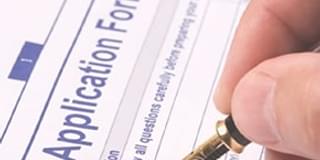
| Updated On - Nov 8, 2024
GATE 2025 Statistics paper is scheduled to be held on 1, 2, 15 and 16 February. Candidates can check the official syllabus for GATE 2025 Statistics over GATE's official website.
GATE 2025 Statistics provides better competition, as the major topics comprise 15-20% weightage to the exam. Probability comprises 25% of its syllabus, Linear Algebra 15%, and Descriptive Statistics 20%, for which one has to prepare with dedicated hours of 4, 3, and 4 weekly hours respectively.
-
Probability occupies around 25-30% of the total syllabus. Bayes' theorem and random variables are important concepts for GATE 2025 Statistics Paper. A 12 week preparation strategy is provided to help candidates excel in the GATE 2025 exam.
-
Mock tests are a must and candidates should attempt 2-3 full-length tests every three weeks to monitor progress. Top performers spend 25-30% of their preparation time on critical concepts like convergence theorems.
Here’s a 12 week structured timetable with Syllabus-wise weightage analysis, Mock Tests and Previous Years’ Papers which will help the candidate to strategize effectively for the GATE 2025 Statistics Exam.
Also check: GATE 2025 Statistics Syllabus
GATE Statistics 2025 Subject-wise weightage
The GATE 2025 Statistics syllabus includes Probability, Linear Algebra, Calculus, Real Analysis, Numerical Methods, Descriptive Statistics, and Inferential Statistics. Familiarizing yourself with these topics will enable you to allocate the right amount of time and resources. Here’s an estimated time allotment to keep up with each topic:
|
Topic |
Estimated Weightage (%) |
Preparation Hours (per week) |
|
Probability |
25 |
4 |
|
Linear Algebra |
15 |
3 |
|
Calculus |
10 |
2 |
|
Real Analysis |
10 |
2 |
|
Numerical Methods |
10 |
2 |
|
Descriptive Statistics |
20 |
4 |
|
Inferential Statistics |
10 |
2 |
This table gives a week-by-week breakdown of how much time to dedicate, considering each topic's weightage in the exam. With this estimate, let’s delve into the detailed weekly plan.
Also Check: GATE 2025 Chapter-wise weightage
GATE Statistics 2025 12-Week Structured Timetable
This 12-week weekly schedule is structured around the key concepts and regular revision to prepare optimally for the GATE Statistics 2025 exam. The 2 weeks for each focus area will help you build a comprehensive understanding of essential topics so that you are adequately strong in probability, linear algebra, and statistics.
It includes targeted action points to help you achieve specific goals and preparation in light of regular practice and mock tests.
|
Week |
Focus Areas |
Goals |
Action Points |
|
1-2 |
Probability Concepts |
Build a strong foundation in probability theory |
Study Bayes’ theorem, random variables, and distributions. Solve end-of-chapter exercises from standard textbooks. |
|
3-4 |
Linear Algebra & Calculus |
Master key mathematical concepts |
Focus on matrix operations, eigenvalues, eigenvectors, and continuity and differentiability in Calculus. |
|
5-6 |
Real Analysis & Numerical Methods |
Strengthen core problem-solving skills |
Practice limits, convergence, and error analysis in numerical methods. Attempt past GATE questions in these areas. |
|
7-8 |
Descriptive Statistics |
Develop statistical analysis skills |
Cover measures of central tendency, variance, and skewness. Apply these concepts to dataset analysis. |
|
9-10 |
Inferential Statistics |
Apply inferential techniques to sample data |
Learn hypothesis testing, confidence intervals, and estimation techniques. Focus on formulae and quick calculations. |
|
11 |
General Aptitude & Revision of Key Topics |
Boost general aptitude; revise high-weightage topics |
Practice aptitude questions daily. Revisit Probability and Linear Algebra with a focus on formula retention. |
|
12 |
Comprehensive Revision & Mock Test |
Test readiness and finalize areas of improvement |
Attempt 2-3 full-length mock tests; identify weak areas and focus on revision. |
Each week’s focus ensures a balanced approach, from foundational understanding to intense revision and practice.
GATE 2025 Statistics timetable for the week before exam
The last week should focus on polishing all topics and reinforcing confidence without overexertion. Here’s a recommended day-by-day breakdown for the final week:
|
Week |
Mock Test Frequency |
Focus of Analysis |
Action Plan |
|
1 |
2 Mock Tests (1 per 3 days) |
Identify areas with high error rates in weak topics |
Review all incorrect answers and mark challenging concepts for focused revision. |
|
2 |
3 Mock Tests (1 per 2 days) |
Analyze time taken per question; focus on accuracy |
Implement time management techniques to reduce time spent on lengthy calculations in Numerical Methods. |
|
3 |
4 Mock Tests (alternate days) |
Simulate exam-like conditions, enhance speed |
Gradually increase the speed of answering without compromising accuracy. Address problem-solving bottlenecks. |
|
4 |
3 Mock Tests (alternate days) |
Finalize test strategy, accuracy over speed |
Emphasize accuracy, avoid revisiting incorrect topics, focus on general aptitude, and light topic revision. |
Also Check: GATE 2025 high-weighing topics: Convergence and Limit Theorems
GATE 2025 Statistics high-weighing topics under Probability
Probability consistently holds a high weightage in the GATE 2025 Statistics syllabus, typically comprising 25-30% of the paper. It’s crucial to have a strong command over probability theory, random variables, and key distributions. Here’s how to handle Probability effectively:
-
Focus on Core Theorems and Definitions: Begin by thoroughly understanding foundational theorems such as Bayes’ theorem, the Law of Total Probability, and Markov chains. Create flashcards for these key theorems and revise them daily to strengthen memory recall.
-
Practice with Real-World Examples: Probability can be complex without practical application. Use real-world examples to contextualize problems and build intuitive understanding, particularly for concepts like expected values, conditional probability, and probability distributions.
-
Use a Step-by-Step Problem-Solving Approach: Probability problems often involve multiple steps, so break down each problem into parts to avoid confusion. For example, with conditional probability questions, identify given information and required outcomes before applying formulas.
|
Key Areas |
Recommended Techniques |
Practice Tips |
|
Probability Theorems |
Flashcards and Daily Revision |
Practice applying theorems to varied problem types |
|
Random Variables |
Visualize with distribution graphs |
Solve questions using both theoretical and visual methods |
|
Probability Distributions |
Real-life application examples |
Memorize properties of normal, binomial, and Poisson distributions |
GATE 2025 Statistics: high- weighing topics under Derivative Statistics
Descriptive Statistics is another high-weightage area, usually covering around 20-25% of the exam. This section includes measures of central tendency, dispersion, and skewness, all of which require a balance of theoretical understanding and practical application.
-
Memorize Key Formulas: Formulas for mean, median, mode, variance, and standard deviation should be at your fingertips. Create a formula sheet and revise it consistently.
-
Practice Data Interpretation with Visual Aids: Descriptive Statistics often involves interpreting datasets and summarizing information. Use visual aids like histograms, box plots, and scatterplots to practice interpreting data, especially for identifying skewness or outliers.
-
Use Software Tools for Accuracy: Using tools like MS Excel or R for solving statistical problems can help familiarize you with computational tools and improve accuracy, especially for large datasets.
|
Key Concepts |
Technique |
Practice Tips |
|
Central Tendency |
Memorization and quick calculations |
Create sample datasets to practice calculating mean, median, and mode |
|
Dispersion & Variability |
Visual aids (histograms, box plots) |
Interpret data visually to identify patterns |
|
Data Analysis |
Use statistical software (Excel, R) |
Solve questions both manually and with software for accuracy |
GATE 2025 Statistics: high-weighing topics under Linear Algebra
Linear Algebra, with its applications in matrix operations, eigenvalues, and eigenvectors, typically holds 15-20% of the paper’s weightage. This topic requires logical thinking and practice in solving complex equations.
-
Master the Basics First: Before diving into complex matrix operations, ensure a solid understanding of vector spaces, linear transformations, and matrix multiplication. Practice these basics to lay a strong foundation.
-
Use a Formula Sheet for Matrix Properties: Matrix properties and operations (e.g., inverse, determinants) are central to Linear Algebra questions. Prepare a formula sheet covering properties of matrices and eigenvalues for quick reference.
-
Problem Solving for Speed and Accuracy: Since Linear Algebra questions can involve lengthy calculations, focus on problem-solving strategies. Practice breaking down matrix calculations into simpler steps and using shortcuts wherever possible to save time during the exam.
|
Key Concepts |
Technique |
Practice Tips |
|
Matrix Operations |
Formula sheet and quick recall |
Practice solving 2x2 and 3x3 matrices manually |
|
Eigenvalues & Eigenvectors |
Step-by-step solution practice |
Solve multiple problems to get comfortable with the steps involved |
|
Vector Spaces |
Visualization techniques |
Use diagrams to understand vector transformations |
Mock Tests and Previous Years’ Papers for GATE 2025 Statistics
In the last month, increase the frequency of full-length mock tests. Here’s an empirical guideline for mock test scheduling:
|
Week |
Mock Test Frequency |
Focus of Analysis |
Action Plan |
|
1 |
2 Mock Tests (1 per 3 days) |
Identify areas with high error rates in weak topics |
Review all incorrect answers and mark challenging concepts for focused revision. |
|
2 |
3 Mock Tests (1 per 2 days) |
Analyze time taken per question; focus on accuracy |
Implement time management techniques to reduce time spent on lengthy calculations in Numerical Methods. |
|
3 |
4 Mock Tests (alternate days) |
Simulate exam-like conditions, enhance speed |
Gradually increase the speed of answering without compromising accuracy. Address problem-solving bottlenecks. |
|
4 |
3 Mock Tests (alternate days) |
Finalize test strategy, accuracy over speed |
Emphasize accuracy, avoid revisiting incorrect topics, focus on general aptitude, and light topic revision. |
Mock tests are critical for building confidence, enhancing time management, and identifying improvement areas. Analyzing mock tests with a focus on time allocation and mistake patterns will provide significant insights for the actual exam.
GATE 2025 Statistics Previous Years’ Papers (2019-2023)
Practicing with previous years' papers is an essential part of GATE 2025 Statistics preparation. These papers provide insight into the exam pattern, types of questions, and the difficulty level of the Statistics section. By solving them, candidates can assess their preparation and improve time management for the actual exam.
|
Year |
Session |
Question Paper Pdf |
|
February 12, 2023 |
Forenoon Session |
|
|
February 6, 2022 |
Forenoon Session |
|
|
February 7, 2021 |
Afternoon Session |
|
|
February 2, 2020 |
Forenoon Session |
|
|
February 3, 2019 |
Afternoon Session |
Additional Toppers’ Tips for GATE 2025 Statistics
-
Manage Exam Pressure: Arrive early and stay calm to avoid last-minute stress.
-
Follow a Question-Solving Hierarchy: Attempt easy questions first to gain confidence and allocate more time to complex calculations.
-
Time Your Sections Wisely: Spend around 90 minutes on Statistics, 30 minutes on General Aptitude, and use any remaining time to revisit flagged questions.









Comments